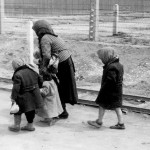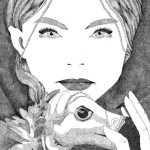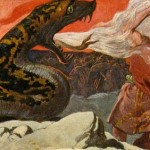9/11 is a difficult time for me for reasons that it may not be for a lot of other US citizens.
We all tell our “Where were we when we heard” stories. Mine started with my best friend waking me up with a call saying that someone was attacking and the world was ending. She was incoherent. Given her “world ending” statement I had to ask if it was aliens (I read War Of The Worlds before most people my age had heard of H.G. Wells). Honestly, that might have been better.
Everyone was stunned and numbed that day. We watched the footage over and over again. We heard that it had been Muslim terrorists, something I had been hoping hadn’t been the case. I immediately started to worry. I had been raised in a Muslim household, and have Muslim family and friends. While I felt gut-stabbed by the devastation that went on a quiet voice in the back of my head was warning of worse things.
Those worse things happened.
For a brief moment it seemed like things would be all right. People of all religions and backgrounds were helping survivors. Muslim imams along with leaders of every faith denounced the attacks, but I was afraid it wouldn’t be enough. I had fears of attacks on property, of assaults, of lynchings. I had fears of totalitarianism and loss of freedom. I had seen resentment towards Muslims building over the years and I saw in them the target that America wanted to turn its ire against in the post-Cold War world.
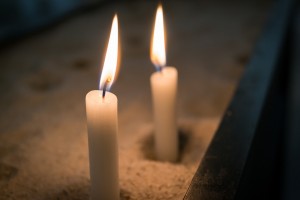
(Didgeman/pixabay.com)
I still prayed that we were better than this. I hoped that we would overcome that, that the voices of hatred would be drowned out by voices of unity. I knew that they wouldn’t when I saw broken windows of a local store, covered in thin plastic that flapped in the wind with the words “Arabs Go Home” spraypainted on the sign. If I had been writing a book about something like this happening, I would have included that as a scene. If I had read such a book, I would have rolled my eyes because it was a trite cliche and people don’t actually do that, do they?
Apparently they do.
Does nobody remember the paranoia of the Bush years? The “free speech zones”, the dread that so many of us felt when we heard about a new “Department of Homeland Security”? The panic at the jingoistically-named “Patriot Act” that limited our First Amendment rights? I lived in Western New York at the time; the border with Canada closing was monumental, like a giant continent-wide wall slamming down on the soil. It deeply affected the lives of millions and did nothing to improve our national security, and even if it did, it was at the cost of a growing suspicion for our neighbors and restriction of commerce and cultural exchange. It divided families. The fear of Muslims and Islam (and thus anyone who the standard American might suspect was a Muslim, including people of radically different faiths) spread while right-wing shock jocks and conspiracy theorists sold gold, human growth hormone, rations, and bullets, while pastors filled their pews by feeding humans the hate juice that we so easily become addicted to, while politicians repeated “Islam! 9/11!” and received more votes and more control every time.
I know children (actually, at this point, young adults) who have never grown up at a time when we were not at war. They do not know that this is possible. They have never experienced peace. They’ve never known a time when doing battle overseas wasn’t our country’s primary priority.
This year I tried to cope with this by trying to put it through the filters of my own religious values. I didn’t crack open Havamal and start quoting verses to justify how I felt about it; I thought more about broader Heathen values, how I see them, and how they apply to this deep, rotting sickness that weakens our own “tree of liberty”.
Personal Accountability:
There are things that happen in our lives that scar us deeply. Every day the pain from those wounds, fresh or old, influences our thoughts and decisions. Every day, every time it happens we have a choice to listen to the pain or to try and ignore it and see the situation beyond the sickly red haze that it casts across our vision.
I don’t fault people for reacting in pain, but that doesn’t mean that they shouldn’t own the consequences of their actions. What we have created as a result of constantly reacting to the pain of the 9/11 attacks is abomination to our freedoms and rights. When we complain about government overreach, rights being strangled, and permissiveness given to hatred we have to remember that we created this.
That isn’t a judgement; it’s a fact. We created this atmosphere, and by choosing to continue to raise up a national tragedy as a justification for petty hatred, systemic bigotry, increased governmental powers, and human rights violations, we continue to co-create it. This is the America we’ve built, and it won’t become another America unless we stop letting the pain of an old wound guide our actions.
Integrity:
People who live in our country are guaranteed certain inalienable rights, by our Constitution, by our Bill of Rights, and by many other documents and the legal interpretations that have come from them. Those of us who are citizens of this country make an implicit agreement to treat other citizens as having the same sets of rights and freedoms that we do.
Yet we send spies into their places of worship. We attack their places of trade. We attack them personally and sometimes kill them, robbing them of their right to life and with it every other right that our country guarantees them. We lock them up in indefinite detention on foreign soil. Every single violation of that is a violation of the ideals that we are signatory to by being citizen members of our nation. Every single attack is a broken oath.
Frith:
Often translated as “peace”, frith comes with a lot of connotations depending on the region and time frame it was used in. Generally it is a state of peace or non-disturbance created by social relationships and expectations. It usually applies to one’s own kin or Inner-Yard.
Our world is not so simple anymore. The United States is a vast network of governing bodies and people united under a single federal umbrella. However we do have a shared identity. From the early days of our lives Americans are taught the value of being an American and how we should treat one another. “And crown the good with brotherhood from sea to shining sea.” We have a national identity, a group identity, and whether or not you like or agree with someone else in the United States, they are in that sense extended kin.
We’ve broken frith with our extended kin over and over and over. We’ve violated the peace that we’re supposed to be able to enjoy among each other. We’ve violated it in an especially ugly way in targeting particular groups made up of individuals who were raised with some of the same national values and ideals. We’re telling them, “It doesn’t matter how long you’ve been here, how long your family has been here, or what sacrifices you’ve made for our country. You are not our kin.”
Hospitality:
When a stranger comes to your hall, you feed them and give them a spot by the fire. Cautionary tales about failure to give hospitality exist in our lore as well as the broader body of Indo-European lore. After all, you never know when the stranger is a God in your midst – and more importantly, it’s the right thing to do.
Many people assume that Muslim folk that they see (or people that they assume to be Muslim based on appearance) are immigrants. If that’s the case we should treat them as guests until they have proven themselves (which we do through citizenship) and treat them well unless they show themselves, on an individual basis, to be problematic. So targeting Muslims for aggression even if you think they are not citizens is a violation of hospitality.
How many among them were Gods in our midst? Between that and our rejection of basic social virtues that help to foster a cohesive and nurturing society I’m not surprised that we’re in the mess that we’re in.
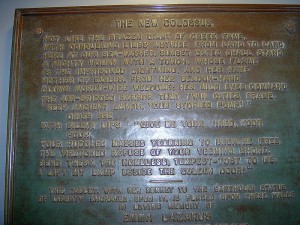
(The New Colossus from the bronze plaque in the Statue of Liberty. Public domain via Wikimedia Commons.)
We are turning on each other. Our kin. Our communities. Ourselves. We have been weaving this shameful Wyrd for our country for fifteen years now. We see the results every day. In our political discourse. In the social lionization of bigots and the social cachet we’ve given the right to express and act on hatred over the rights of those being hated to live unmolested. We fight among ourselves and ignore the dragon gnawing at the roots of our tree and the rot that spreads within it – or worse, shrug and say “Not my problem and what would I do about it anyway?”
It is your problem. We all help to create and maintain this state of things. We took an atrocity and used it to create more atrocities rather than using it as a reminder that these things should not happen. You can do things about it. Speak out when you see Muslims being mistreated, when you hear innocents casually tied to vile things that people they never knew and would never have supported have done. Interpose yourself when they are being harassed publicly. For Yggdrasil’s sake get to know them; you might find you have more in common than you realize.
Speak out against the political and social corruption that this has engendered. Use your minds and your words, and failing that, find the words of others that you resonate with that support your stance. Vote, vote, vote!
Shame isn’t the worst thing. No one likes being shamed, but that’s rather the point – and why it makes an effective tool for social change. It makes us react defensively and struggle and say “No! Not me! I didn’t do that! I’m not responsible for that!” and sometimes we aren’t. It’s valuable to listen, take the blow against you and really evaluate if you deserved it or not. If you judge that you did not, fair enough, defend yourself and speak up so that others being shamed for the same thing might join in. If you did deserve it, then ask yourself, what can I do to behave differently? The discomfort that comes from self-examination is worth the sleep you’ll gain knowing that you’re doing the right thing.
There are a lot of voices calling shame on the United States now, and most heartbreakingly, many are its own citizens. Listen to them when they cry out in pain. Listen to them when they cry out in betrayal. Our responses are what shape theis country that we share. I know that it’s not a sentiment that find its roots in Heathenry, but “be the change you want to see in the world” speaks to the co-creation of our greater Wyrd and accepting personal responsibility for your part in the state of things.
It’s time to stop using this tragedy to justify harming our fellow citizens. It’s time to stop using this tragedy to justify binding ourselves more and more. It’s time to stop using it as a justification to reach out and take things that aren’t ours. Let’s use it as an example of things not to do – and how not to respond to them.



